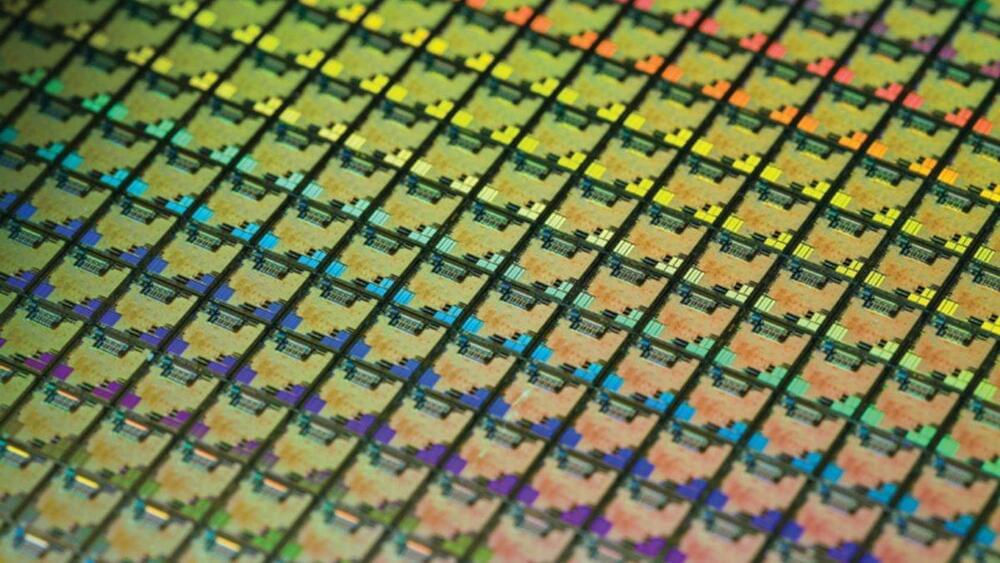As the efforts towards the realization of powerful quantum computers and quantum simulators continue, there is a parallel program aimed at attaining the quantum analog to the classical internet.



To engineer proteins with useful functions, researchers usually begin with a natural protein that has a desirable function, such as emitting fluorescent light, and put it through many rounds of random mutation that eventually generate an optimized version of the protein.
This process has yielded optimized versions of many important proteins, including green fluorescent protein (GFP). However, for other proteins, it has proven difficult to generate an optimized version. MIT researchers have now developed a computational approach that makes it easier to predict mutations that will lead to better proteins, based on a relatively small amount of data.
Using this model, the researchers generated proteins with mutations that were predicted to lead to improved versions of GFP and a protein from adeno-associated virus (AAV), which is used to deliver DNA for gene therapy. They hope it could also be used to develop additional tools for neuroscience research and medical applications.


Whereas traditional colonoscopy involves snaking a camera called a colonoscope through your colon and rectum, a CT colonography, or virtual colonoscopy, consists of X-rays and a computer creating 3D images of these organs.
If you’re between the ages of 45 and 85, you should have a colorectal cancer screening routine in place, per the American Cancer Society (ACS). But a colonoscopy —in which your doctor uses a special camera to look inside your colon and rectum in search of abnormal growths called polyps —isn’t the only option to take charge of your gastrointestinal health.
You can choose from noninvasive screening methods: computed tomography (CT) colonography and/or a stool-based test. Billionaire entrepreneur and Shark Tank investor Mark Cuban tells Fortune he enjoys the relatively low cost and simplicity of the former, also called virtual colonoscopy. In short, it’s an X-ray exam that doesn’t require sedation or anesthesia.


The traveling salesman problem is considered a prime example of a combinatorial optimization problem. Now a Berlin team led by theoretical physicist Prof. Dr. Jens Eisert of Freie Universität Berlin and HZB has shown that a certain class of such problems can actually be solved better and much faster with quantum computers than with conventional methods.
Quantum computers use so-called qubits, which are not either zero or one as in conventional logic circuits, but can take on any value in between. These qubits are realized by highly cooled atoms, ions, or superconducting circuits, and it is still physically very complex to build a quantum computer with many qubits. However, mathematical methods can already be used to explore what fault-tolerant quantum computers could achieve in the future.
“There are a lot of myths about it, and sometimes a certain amount of hot air and hype. But we have approached the issue rigorously, using mathematical methods, and delivered solid results on the subject. Above all, we have clarified in what sense there can be any advantages at all,” says Prof. Dr. Jens Eisert, who heads a joint research group at Freie Universität Berlin and Helmholtz-Zentrum Berlin.


Using a blink-and-you’ll-miss-it experiment, researchers from Trinity College Dublin have discovered that individuals differ widely in the rate at which they perceive visual signals. Some people perceive a rapidly changing visual cue at frequencies that others cannot, which means some access more visual information per timeframe than others.
This discovery suggests some people have an innate advantage in certain settings where response time is crucial, such as in ball sports, or in competitive gaming.
The rate with which we perceive the world is known as our “temporal resolution,” and in many ways it is similar to the refresh rate of a computer monitor.
On this day in 1976: Apple was founded.
Apple Inc., originally named Apple Computer, Inc., is a multinational corporation that creates and markets consumer electronics and attendant computer software, and is a digital distributor of media content. Apple’s core product lines are the iPhone smartphone, iPad tablet computer, and the Macintosh personal computer. The company offers its products online and has a chain of retail stores known as Apple Stores. Founders Steve Jobs, Steve Wozniak, and Ronald Wayne created Apple Computer Co. on April 1, 1976, to market Wozniak’s Apple I desktop computer,[2] and Jobs and Wozniak incorporated the company on January 3, 1977,[3] in Cupertino, California.
